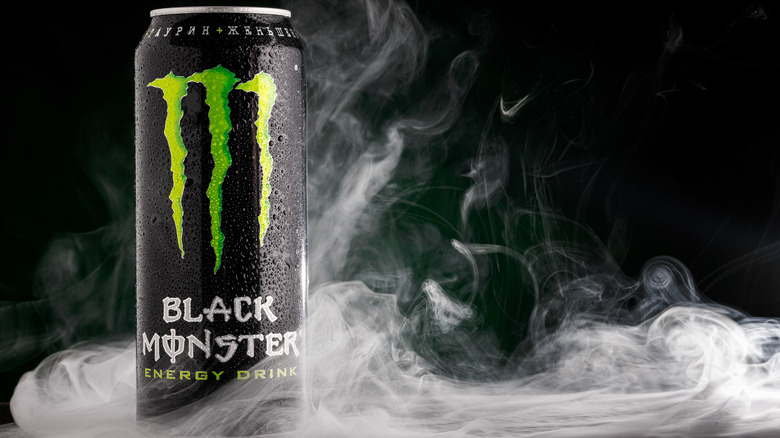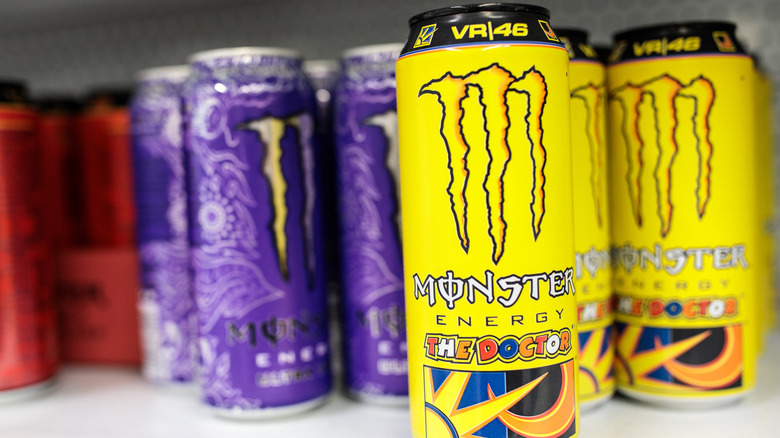The UK Has A Unique Rule About Monster Energy Drinks
Energy drinks can bring out some strong feelings. You are either a fan or you aren't. It's really that simple. These uber caffeine laden energy boosting beverages definitely have a strong following of supporters. According to the U.S. Department of Health and Human Services (HHS), they are almost as popular as multivitamins, with men between the ages of 18 and 34 years comprising the drink's largest demographic followed by one-third of teens in the 12 to 17 age bracket. Enter the likes of Monster Energy drinks. The brand has created a strong following through its strategic partnership with the Coca-Cola Company and by marketing drinks to its Monster Army, which they describe as support for athletes between the ages of 13 and 21 who participate in sports like BMX racing and surfing.
But the proof of its popularity is in the numbers. In 2020 alone, per Statista, Monster Energy drinks sold around 430 million cans in the U.S., which contributed to global sales that totaled nearly $4.6 billion. Cha-ching. But there is one market where Monster Energy drinks may want to pander to its young English Premier League, "Dr. Who" loving population, but is unable to do so and reign supreme. In fact, the United Kingdom actually has a unique rule that relates to the purchase and consumption of this energy drink.
You have to be 16 to purchase
Per The Guardian, if you live in the United Kingdom and are under 16, you cannot legally purchase energy drinks, including Monster Energy. Why? The outlet shares that the high amount of sugar and caffeine these drinks contain and how the combination of the two affects both the health and behavior of this demographic has raised some real concerns with experts, ultimately prompting the rule. To be fair, the rule is for all energy drinks that contain over 150 mg of caffeine per liter. According to iTV, Monster Original contains the equivalent amount of caffeine as four espressos, or 160 mg per 500 ml can, and 13 teaspoons of sugar. Yikes!
But the U.K. is not alone. Even in the U.S., HHS also has some strong warnings when it comes to consuming energy drinks and is quick to explain the nutrient red flags that accompany these popular energy enhancers when consumed by young people. The department shared that in its findings, college students who drank alcohol and energy drinks together were more likely to binge-drink at higher rates than those who don't. They cited the CDC, which noted that youths between the ages of 15 and 23 who mix alcohol with energy drinks are four times more likely to do so. They define this as drinking more than six energy drinks with alcohol in a single sitting. While energy drinks may provide a caffeine buzz, it's important to consume them responsibly.

